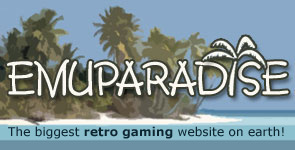Demeiz rates this game: 1/5Dave Mirra Freestyle BMX started life on the PlayStation. Using a modified version of the engine that brought Thrasher: Skate and Destroy to life, Mirra was a decent, albeit easy, and somewhat dull PlayStation game. For better or worse, the Dreamcast version keeps all the same options, gameplay mechanics, and odd little glitches. However, the Dreamcast version adds a new mess of graphical problems to the mix, resulting in a game that is essentially unplayable.
Dave Mirra's main mode, the proquest, is a very goal-oriented mode. You start each level with four amateur challenges to complete. They are usually reasonably simple, such as score challenges, simple jumps, or knocking over items. Once those are completed, the pro challenges become available. The pro challenges are, as you might imagine, a little more difficult, and they'll ask you to do things like grind for 50 feet, make long transfers, or get a reasonably high score. After that come the hard-core challenges, which manage to be a bit more challenging than the rest of the level goals. While it's heavy on the "grind X number of feet" and score-based goals, the game's other challenges are fairly inventive and do a lot for the gameplay. The levels range from dirt tracks, to street settings, to full-on professional competition arenas, and most of them are fairly well designed. The game's other modes include the now standard free-ride and single-session modes as well as a two-player mode with lots of variants, such as best run, furthest jump, highest walltap, and so on.
The game controls are similar to those found in other games in the genre, such as Tony Hawk and MTV Sports: Skateboarding. It does, however, change things up a bit by having a move modifier button rather than a grab-style trick button. When used with the other trick buttons, you can combine different moves to actually create different tricks, such as superman seat grabs, no-look one footers, and the like. This trick system breathes a little life into the game and keeps it from being a simple clone of the various skateboarding games on the market. However, the game is way too lenient at times, as it lets you land sideways more often than it should. Also, pressing the grind button when you are within what seems like three or four feet of a grindable lip or edge causes your bike to automatically reorient itself and grind, regardless of how fast or how sideways you may be flying at the edge. It's almost as if pushing the Y button turns on a "grind magnet" of sorts, and anything in its reach sucks your bike to the ledge and starts the grind. It's even possible to combo vert tricks into grinds and stalls using your magnetic pegs. Thrasher had this problem, but it's much, much worse in this game.
Where the Dreamcast version of Dave Mirra falls apart is in its graphics. While still pictures of the game look tolerable, and the models and trick animations look pretty solid, the game's frame rate is extremely jumpy. Get close to a complex object or get yourself in a position where you can see a lot of the level, and you're looking at around ten frames per second. Considering the game is such a timing-based endeavor, the random frame rate makes the game almost completely unplayable. Adding to the laughable display is extreme amounts of pop-up, which goes completely unhidden by fog or any other standard pop-up masking trickery. Instead, you'll occasionally see half of a building in the distance, and the other half flickering in and out of sight as you approach it. The textures used throughout the game are a little plain, but they fit with the rest of the game's look. The game's sound is tolerable, and the soundtrack is filled with licensed music from bands like Cypress Hill, the Deftones, Sublime, Rancid, and lots more.
While the PlayStation version managed to be a fairly inoffensive game, the Dreamcast version's graphical flaws manage to wreck anything the game has going for it, leaving behind an ugly, unplayable mess. If you're a BMX junkie, the PlayStation version, while nothing spectacular, is far superior to the Dreamcast edition.



-1497799042-thumb.png)
